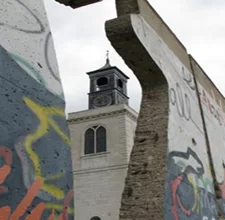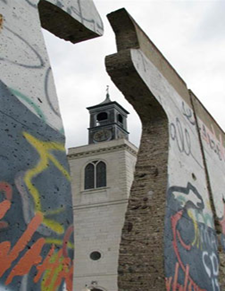The Wall and its impact on real estate prices

Impact on Real Estate Prices. To invest in Dubai real estate properties, speak to a team of professionals having sound knowledge of Dubai real estate. For more details, visit our website.
The fall of the wall was one of the most significant turning points in Berlin’s history.
Thanks to this event, Berlin became the vibrant and blooming Metropolis it is today. Evidently, this did not happen overnight. It has taken the German Government many years and investment of billions of euros to bring the city back to those days of glory and prosperity.
In autumn of 1989, after the fall of the Berlin wall, Germany and in particular residents of Berlin were in a general euphoria; The border between West and East vanished. The ‘Westerners’ started spending huge amounts of money. Demand for real estate increased, prices surged by 33% and everyone was happy until euphoria faded and reality emerged. Obviously, the practical aspects to be considered in order to reunite two so completely different states/cities (Socialist/communist versus capitalist/democratic) were by far more complex than the Government had anticipated.

Impact on Real Estate Prices
The country’s economy and the citizens’ economic situation was worse than expected. The neighboring countries in the West were much better off. Most organizations or factories that had not taken appropriate measures to prepare for this new situation were closing down. The transportation sector required a new infrastructure, similar to electricity, gas, and communications. The Government had to strongly intervene in the field of construction and real estate. By the end of 1994 this situation led to a serious economic crisis, 3600 businesses had to close down and unemployment reached never heard off levels.
Berlin, as usual, suffered the most. The capital that was erased after World War II, depredated by the Communist regime, was in need of massive investment to an extent that the Government could not predict at that stage. During those years, real estate prices in Berlin dropped by 30% , emigration figures broke records, the birth rate reached almost zero level, and investors took their business to industrial and modern cities such as Zurich and Munich. Berlin was left with empty properties, abandoned industrial land and apartments at extremely low prices that nobody was interested to buy.
Impact on Real Estate Prices
This situation continued until the early 20th century. The Government then approved a revolutionary reform for reconstruction and development with the purpose to attract new populations. Within the frame of this program entrepreneurs and business people would be granted subsidies and grants for the construction of new apartments and commercial/shopping centers, to enhance employment rates and leisure. Within a few years, shopping centers were built, industrial zones and commercial areas, skyscrapers, museums, parks, stadiums. The city became one of the most popular cities for living and business.
In 2010 Berlin overtook Munich for the first time ever. The real estate analysts Cushman & Wakefield declared Berlin the European city with the most attractive business opportunities in Europe. The fact that approximately 60% of the city’s inhabitants are nonbelievers makes Berlin the Capital of Atheism in Europe.
